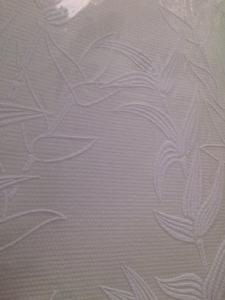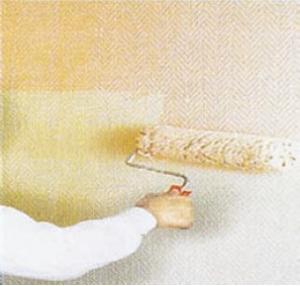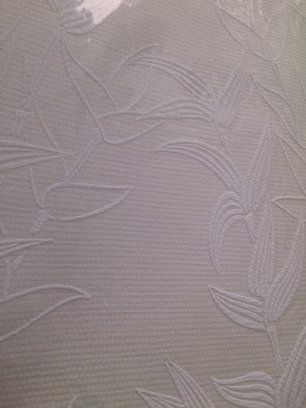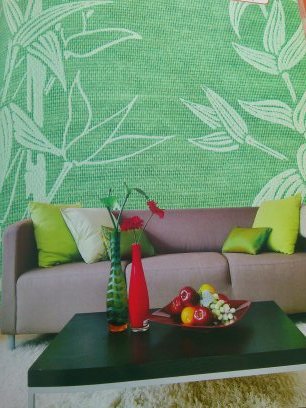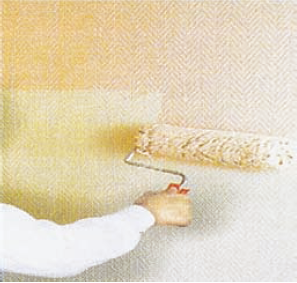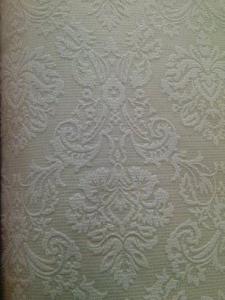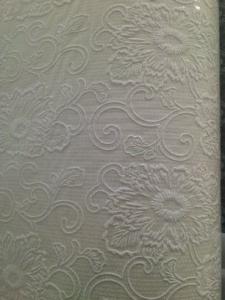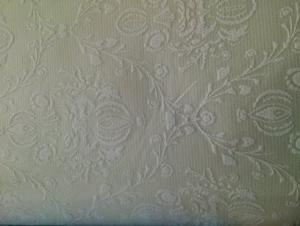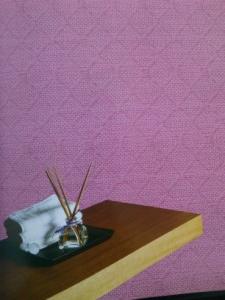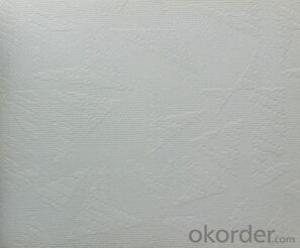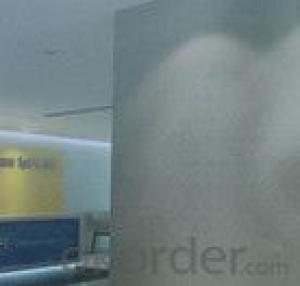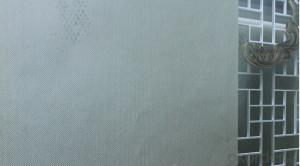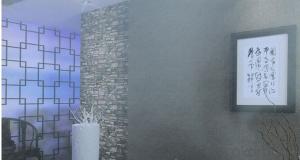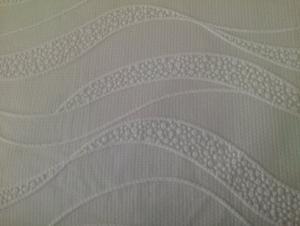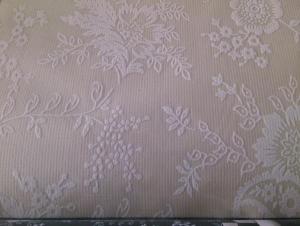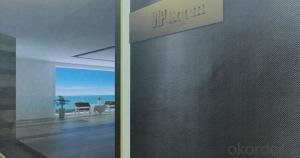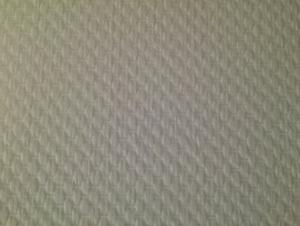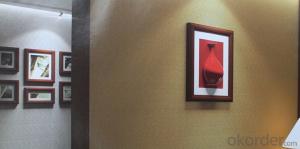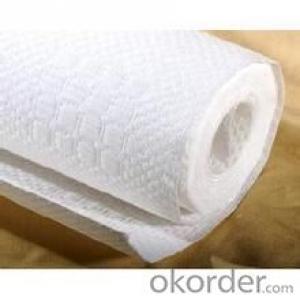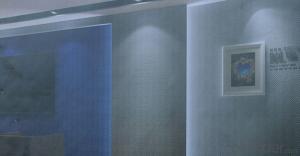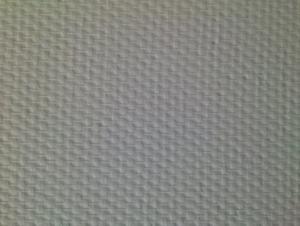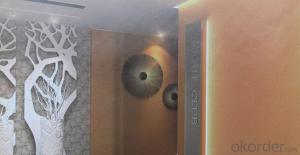Fiberglass Wallcovering Cloth - Foam Fiberglass Wallcovering Cloth G1108
- Loading Port:
- China Main Port
- Payment Terms:
- TT or LC
- Min Order Qty:
- 10000M2 m²
- Supply Capability:
- 1000000square meter/month m²/month
OKorder Service Pledge
OKorder Financial Service
You Might Also Like
Product Description of Foam Fiberglass Wallcovering:
Fiberglass wallcovering cloth,that combines the versatility of paint,from latex to epoxy ,with the strength and benefits of woven
fiberglass textile yarns to meet the most demanding wall finish requirements.Fiberglass textile yarns, as a kind of natural materials,
are woven into various textures and patterns and then treated with a natural starch binder for dimensional stability during the hanging
process.As a high-tech indoor decorating material,fiberglass wall covering cloth is widely used in resident homes,offices and shops
and even cinemas,theatres,hotels and hospital facilities,air ports,offic building,shopping centrals and schools.
Compared with traditional wall paper,fiberglass wall covering cloth has the following advantages:
·Environment Friendly · Flame Retardant · Air Permeability
·Shock Resistance · Waterproofing · Anti-corrosion
·Abundant Colors & Patterns
International Corporation of Foam Fiberglass Wallcovering
Style | Yarn Density (ends/250px) | Area Weight (G/㎡) with ± 10% tolerance | |
Warp | Weft | ||
000 | 40 | ||
001 | 30 | 20 | 120 |
002 | 30 | 17 | 100 |
003 | 50 | 30 | 130 |
004 | 80 | 33 | 160 |
006 | 30 | 22 | 140 |
007 | 15 | 16 | 175 |
008 | 30 | 26 | 150 |
011 | 30 | 25 | 150 |
012 | 30 | 25 | 150 |
013 | 30 | 26 | 150 |
014 | 30 | 26 | 150 |
016 | 80 | 45 | 175 |
019 | 40 | 45 | 240 |
021 | 34 | 34 | 170 |
022 | 30 | 28 | 150 |
023 | 30 | 25 | 150 |
024 | 30 | 25 | 150 |
025 | 30 | 25 | 150 |
026 | 30 | 25 | 140 |
027 | 80 | 45 | 165 |
028 | 30 | 24 | 145 |
029 | 30 | 24 | 145 |
Externals picture of Foam Fiberglass Wallcovering
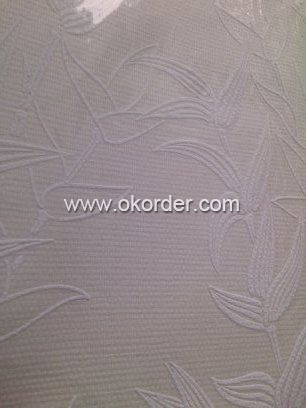
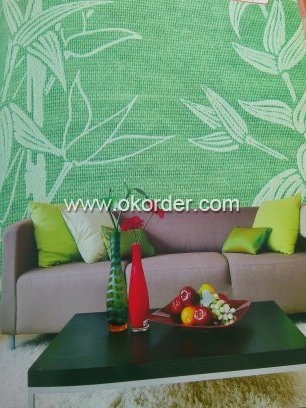
Packaging of Foam Fiberglass Wallcovering
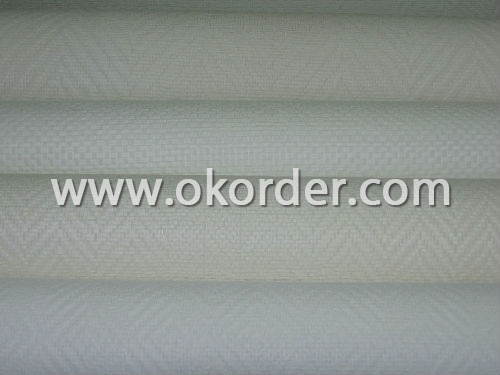
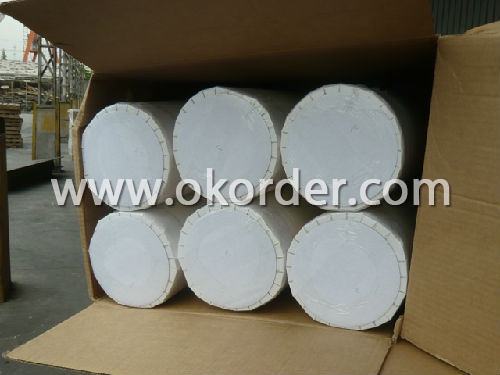
- Q: Is fiberglass wallcovering cloth suitable for use in swimming pools or other water-related environments?
- No, fiberglass wallcovering cloth is not suitable for use in swimming pools or other water-related environments. While fiberglass is known for its durability and resistance to chemicals, it is not designed to withstand prolonged exposure to water. Fiberglass wallcovering cloth is more commonly used in dry areas such as commercial buildings, offices, or homes where there is minimal moisture or humidity. In water-related environments, it is recommended to use specialized materials such as tiles, epoxy coatings, or waterproof paints that are specifically designed to withstand the constant exposure to water and the associated humidity and moisture. These materials are specifically formulated to provide a waterproof barrier and prevent any damage or deterioration caused by water.
- Q: How does fiberglass wallcovering cloth compare to other wallcovering materials?
- Fiberglass wallcovering cloth offers several advantages compared to other wallcovering materials. Firstly, it is highly durable and resistant to wear and tear, making it a long-lasting option for walls. Additionally, it is resistant to moisture, mold, and mildew, making it suitable for humid environments such as bathrooms and kitchens. Fiberglass wallcovering cloth is also fire-resistant, providing an added level of safety. Furthermore, it offers excellent dimensional stability, meaning it does not shrink or expand over time. Lastly, fiberglass wallcovering cloth is versatile and can be easily painted or textured to create various aesthetic finishes. Overall, its durability, resistance to moisture and fire, and versatility make it a superior choice compared to other wallcovering materials.
- Q: Is fiberglass wallcovering cloth resistant to UV damage?
- Yes, fiberglass wallcovering cloth is resistant to UV damage. Fiberglass is known for its durability and strength, and it is designed to withstand various environmental factors, including UV radiation. Fiberglass wallcoverings are often used in outdoor applications where they are exposed to direct sunlight and other harsh weather conditions. The material's resistance to UV damage ensures that it remains intact and maintains its original appearance over time. Additionally, fiberglass wallcoverings are also resistant to fading, cracking, and peeling, further enhancing their longevity and suitability for outdoor use.
- Q: Does fiberglass wallcovering cloth provide any insulation properties?
- Yes, fiberglass wallcovering cloth does provide some insulation properties. Fiberglass is known for its thermal insulating properties, which means that it can help to prevent heat transfer through walls. When used as a wallcovering, the fiberglass cloth can act as an additional layer of insulation, reducing heat loss in the winter and heat gain in the summer. However, it is important to note that the insulation properties of fiberglass wallcovering cloth may not be as significant as other insulation materials such as foam or cellulose. Therefore, it is advisable to consider other insulation options if maximizing energy efficiency is a priority.
- Q: Is fiberglass wallcovering cloth suitable for use in concert halls or auditoriums?
- Yes, fiberglass wallcovering cloth is suitable for use in concert halls or auditoriums. It offers excellent acoustic properties, such as sound absorption and diffusion, which are crucial in these spaces to enhance the overall sound quality and prevent echoing. Additionally, fiberglass wallcovering cloth is durable, fire-resistant, and easy to clean, making it an ideal choice for high-traffic areas like concert halls and auditoriums.
- Q: Does fiberglass wallcovering cloth have any specific installation requirements for seismic or earthquake-prone areas?
- Fiberglass wallcovering cloth must be installed differently in seismic or earthquake-prone areas. It is vital to securely attach the wallcovering to the wall to withstand potential seismic activity. Here are some installation requirements for seismic areas: 1. Prepare the Substrate: Before installing the fiberglass wallcovering cloth, properly prepare the wall surface. Ensure it is clean, dry, and free from loose debris. Repair any cracks or damages to create a stable base for the wallcovering. 2. Choose the Right Adhesive: Selecting the appropriate adhesive is crucial in earthquake-prone areas. It is recommended to use a high-strength adhesive specifically designed for seismic applications. These adhesives have enhanced bond strength and flexibility to endure seismic movements. 3. Apply the Adhesive: Evenly apply the adhesive to both the wall surface and the back of the fiberglass wallcovering cloth. Spread the adhesive uniformly to establish a strong bond between the wall and wallcovering. Follow the manufacturer's instructions regarding drying and open time. 4. Install Properly: Ensure proper alignment and smooth application when installing the fiberglass wallcovering cloth. Avoid trapping air bubbles or wrinkles between the wall and wallcovering, as they can compromise its integrity during seismic activity. Use a smoothing tool to eliminate air bubbles and achieve a tight bond. 5. Treat Seams: Pay special attention to seams in the fiberglass wallcovering cloth. Properly treat overlapping or butt joints to prevent peeling or separation during seismic events. Apply an additional layer of adhesive or use a recommended seam treatment product to reinforce the seam's strength. 6. Regularly Inspect: After installation, regularly inspect the fiberglass wallcovering cloth for any signs of damage, peeling, or separation. Promptly address any issues to maintain the wallcovering's effectiveness in seismic areas. It is advisable to consult a professional installer or follow the manufacturer's guidelines for specific installation requirements in seismic or earthquake-prone areas. Adhering to these requirements will ensure the durability and effectiveness of fiberglass wallcovering cloth in such environments.
- Q: Can fiberglass wallcovering cloth be used in exterior facade elements or cladding?
- Yes, fiberglass wallcovering cloth can be used in exterior facade elements or cladding. Fiberglass cloth is a versatile and durable material that is known for its resistance to moisture, chemicals, and extreme temperatures. These characteristics make it suitable for use in exterior applications where the cladding or facade elements are exposed to harsh weather conditions. Fiberglass wallcovering cloth can be used to reinforce and strengthen the exterior surfaces of buildings, providing added protection against impact, cracks, and other forms of damage. It can also be used to create a smooth and uniform appearance on the facade, enhancing the aesthetic appeal of the building. Furthermore, fiberglass cloth is lightweight and easy to install, which makes it a convenient choice for exterior cladding. It can be applied directly to various surfaces, including concrete, wood, metal, or even existing walls, making it a flexible option for different types of buildings and architectural designs. However, it is important to note that the success of using fiberglass wallcovering cloth in exterior facade elements or cladding depends on proper installation and maintenance. It is recommended to consult with professionals or manufacturers to ensure that the specific product and installation method are suitable for the intended application and meet the necessary building codes and standards.
- Q: Does fiberglass wallcovering cloth require a specific type of adhesive for installation?
- Yes, fiberglass wallcovering cloth typically requires a specific type of adhesive for installation. Due to its unique properties and composition, fiberglass wallcovering cloth often needs an adhesive that is specifically designed to bond with the material effectively. This is essential for ensuring a secure and long-lasting installation. It is recommended to use a high-quality adhesive that is specifically formulated for fiberglass wallcovering cloth to achieve the best results.
- Q: Can fiberglass wallcovering cloth be used in exterior architectural elements?
- Yes, fiberglass wallcovering cloth can be used in exterior architectural elements. Fiberglass wallcovering cloth is known for its durability and weather resistance, making it a suitable choice for exterior applications. It is commonly used in outdoor spaces such as building facades, exterior walls, and cladding systems. The fiberglass material is resistant to fading, cracking, and peeling, which ensures its longevity even when exposed to harsh weather conditions. Additionally, fiberglass wallcovering cloth offers excellent insulation properties, making it ideal for energy-efficient architectural designs. Overall, its strength, durability, and resistance to weathering make it a reliable option for exterior architectural elements.
- Q: Can fiberglass wallcovering cloth be used in conjunction with textured wall finishes?
- Yes, fiberglass wallcovering cloth can be used in conjunction with textured wall finishes. The strong and durable nature of fiberglass allows it to be applied over textured surfaces, providing added strength and protection to the walls while maintaining the desired texture.
1. Manufacturer Overview
| Location | Zhejiang,China |
| Year Established | 2007 |
| Annual Output Value | |
| Main Markets | |
| Company Certifications |
2. Manufacturer Certificates
| a) Certification Name | |
| Range | |
| Reference | |
| Validity Period |
3. Manufacturer Capability
| a) Trade Capacity | |
| Nearest Port | |
| Export Percentage | |
| No.of Employees in Trade Department | |
| Language Spoken: | |
| b) Factory Information | |
| Factory Size: | |
| No. of Production Lines | |
| Contract Manufacturing | |
| Product Price Range | |
Send your message to us
Fiberglass Wallcovering Cloth - Foam Fiberglass Wallcovering Cloth G1108
- Loading Port:
- China Main Port
- Payment Terms:
- TT or LC
- Min Order Qty:
- 10000M2 m²
- Supply Capability:
- 1000000square meter/month m²/month
OKorder Service Pledge
OKorder Financial Service
Similar products
Hot products
Hot Searches
Related keywords
